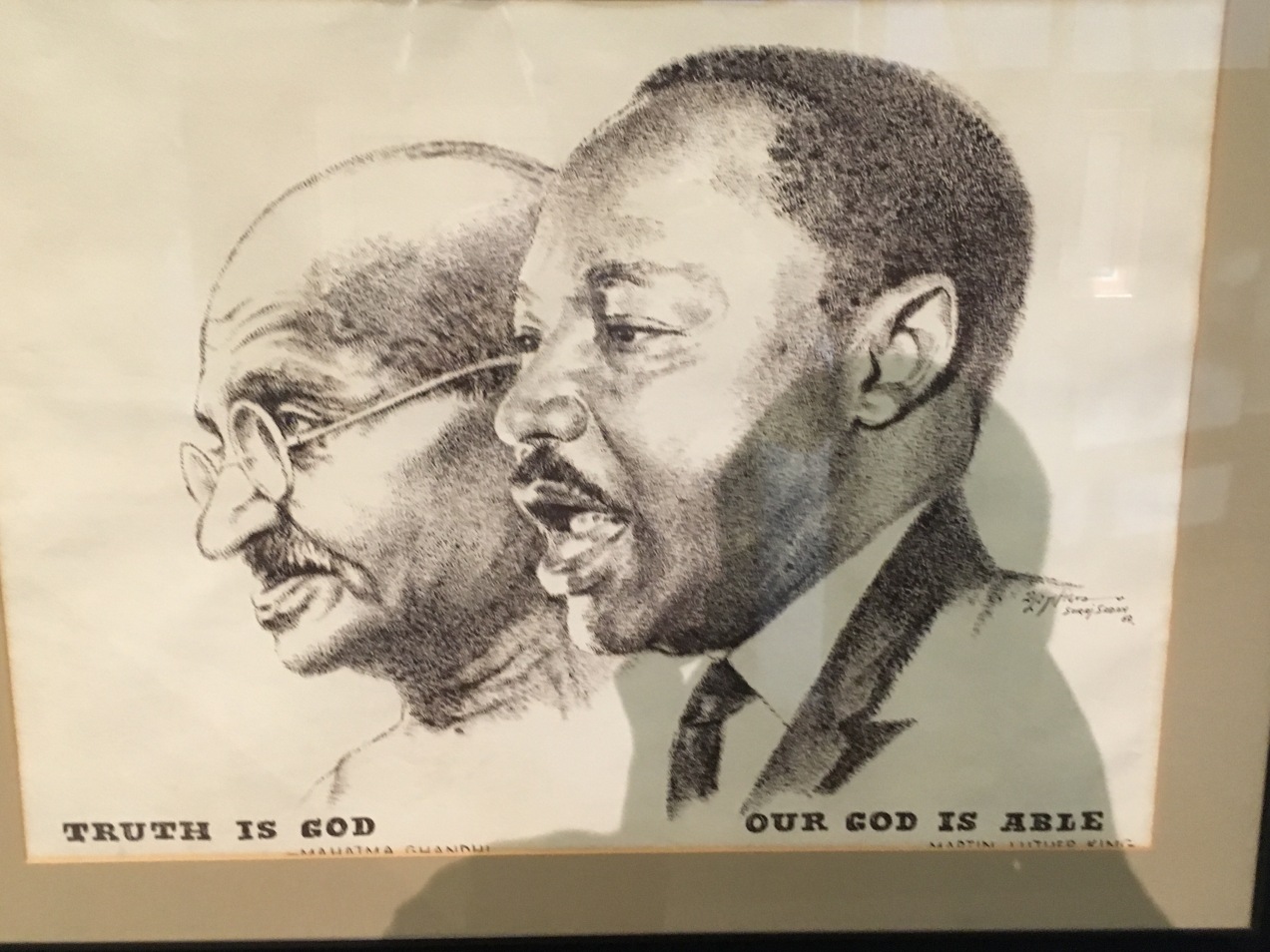“An injustice anywhere is a threat to justice everywhere.” -Martin Luther King, Jr.
By now I’m pretty sure that we can all agree that there hasnt been a greater voice in the last 100 years than that of Rev. Dr. Martin Luther King, Jr. His prophetic proclamation, brilliant oratory and exceptional leadership are hallmarks for every African American in the United States. In fact, today he is heralded as a hero and a champion for civil and human rights. However, his birthday has another level of significance for me this year. In November, I was blessed to study at The King Center in Atlanta for an M.Div. course with Alliance Theological Seminary. Growing up, there were two name I heard about ALL the time: Dr. Martin Luther King, Jr. and the legendary C. L. Franklin. King shaped the moral and social consciousness of a nation marred by the trauma of Jim Crow segregation and the oppression of Willie Lynch. Franklin, was the golden voice preacher that preceded our modern day televangelists and heralded his sermons and music to the masses in the 20th Century. Both of these individuals shaped the hearts of countless homes in the latter 60s and beyond.
While studying in Atlanta, I became obsessed with learning about Dr. King’s origins. Unfortunately, our world knows Dr. King through sound bites and pictures, sometimes totally oblivious to his radical stances that had him feared from the very institutions that celebrate him today! His stances on civil disobedience, economic disruption through boycotting, and public opposition against the war in Vietnam, made him a threat to the status quo and ultimately cost him his life. As the grandson of sharecroppers from Alabama and an emerging millennial theologian, I always wondered what it would’ve looked like if Dr. King had lived past 39? What policies would have been enacted? What political offices might he have ran for? Who would’ve been his next crop of leaders? These questions plagued my mind while researching his papers at the Research Library in Atlanta. Looking through his notes, I felt a sense of compassion and a sense of profound conviction. I was shaken out of my complacency and injected with a fresh dose of righteous indignation. As a Prophet, Dr. King often stood not at the center of culture but on the edge. I think he would be greatly surprised by how he is revered today. Furthermore, I think he would have a lot to say at the conclusion of the Obama Presidency and the recent spike in mass shootings of young, Black lives. In a sense, I was awakened to his struggle but also was grieved that his life was cut so short. Because as James Cone points out in, “Martin and Malcolm and America”, Martin saw a dream but Malcolm internalized the nightmare. All we have to do is look at the recent crisis in Flint, Michigan and see how we’ve come a long ways but have a long ways to go.
Although I left Atlanta with clarity in my calling, it also made me aware of how ignorant my generation is concerning the struggle of civil rights. We’ve almost swept it under the rug. Nevertheless, the list keeps getting longer: Trayvon, Tamir, Eric, Sandra… I believe King would have a lot to say about that and I don’t think it would be pretty either. This has caused me to ask, “What’s happened to prophetic voice of the Black Church in America?” Have we gotten too comfortable in a culture that is mired against morality, integrity and character? Where are the Martins, Malcolm’s, Adam Clayton Powell’s, who address the issues of our times with strategy and finesse?
Today, as we reflect on Dr. King’s Legacy, I salute Dr. Jamal Harrison Bryant. He has become a voice in the wilderness for the care and concern of an oppressed people. He is both a statesman and a scholar, bridging the role of Prophet and Priest along with a sense of swag and resilience. As a pastor of a church in Brooklyn, New York, I know the challenges of the urban community. I live in Brownsville, Brooklyn and my heart bleeds for the young men that I see everyday. Every year on King Day, we gather groups of young leaders and ministers and community activists and march down the streets of Brooklyn praying BOLDLY. We minister to youth, the elderly and other onlookers reminding them that they too have a responsibility to speak and prosperity over the city. Looking forward, it won’t be the money chasing antics of Hip-Hop stars and celebrities that brings systemic change but the blood, sweat and tears of people at the forefront of struggle, pain and oppression. As Kirk Franklin says in his new album, “This Revolution WILL Be Televised!”
Checkout the highlights from last years Heal the Land Walk here: https://youtu.be/JdBORXtlj48
D. A. Sherron is the founder and senior pastor of Global Fire International, and the convener of the Global Alliance in Brooklyn, New York. His messages are broadcasted weekly with a digital audience of over 75,000. A bridge builder, his ministry blends theology, history, and technology into a creative Kingdom enterprise. He recently his new book, Color Outside The Lines this Winter. For more information, visit http://www.dasherron365.com (http://www.dasherron365.com/).

Great writing with sadness to the ignorant generation who themselves have been ignored by the so called church. Where they should be receiving guidance and support they are being ridiculed and made to feel that they disappoint Almighty God if they don’t sow into Every Word that is spoken from the pulpit. My heart grieves…
I too, admire and support the Work and the Tenacity that Dr. Jamal Bryant has in efforts to meet the needs of God”s Hurting people.
#Praying without ceasing
#2016ExpectMore
Discussion thanks you